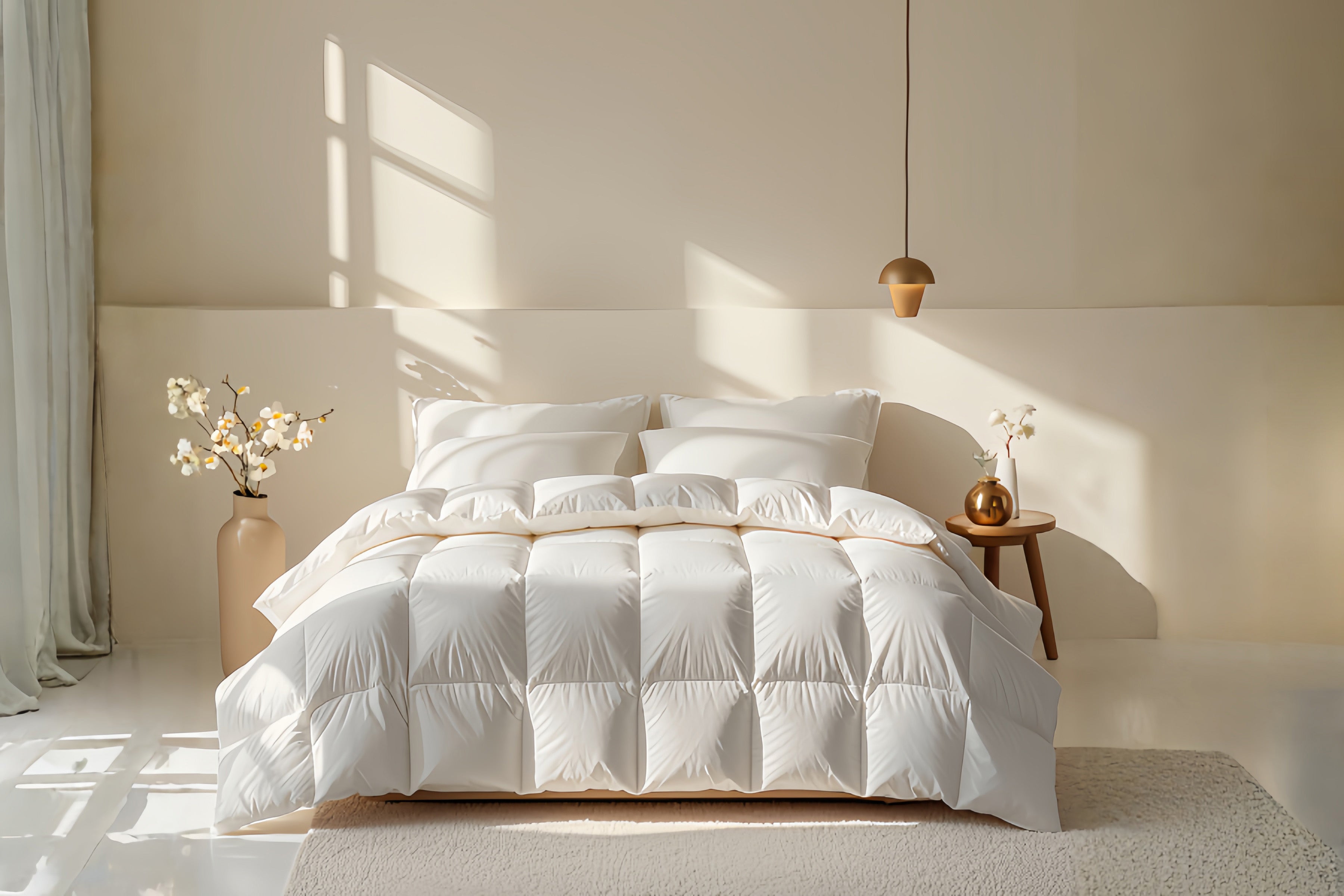Your pillowcase might seem like a simple piece of fabric, but it plays a key role in your sleep, skin health, and overall hygiene. Over time, pillowcases collect oils, sweat, dead skin cells, dust mites, and bacteria. A clean pillowcase isn’t just comfortable—it’s essential for healthy skin and a restful night’s sleep.
Why Pillowcase Hygiene Matters
Imagine tossing and turning at night. Your pillowcase absorbs oils from your face, sweat, and hair products. By morning, it can become a mini breeding ground for bacteria—no wonder your skin might look dull or breakout-prone!
Quick Tip: Sleeping on a clean pillowcase is like giving your skin a mini spa treatment every night.
Washing vs. Replacing
Washing Frequency:
-
General: Wash at least once a week.
-
Oily or acne-prone skin / heavy night sweats: Wash every 2–3 days.
When to Replace:
| Sign | Reason |
|---|---|
| Fading or fraying edges | Fabric loses durability |
| Persistent stains | Hygiene & aesthetics |
| Loss of softness | Comfort decreases |
| Unpleasant odors | Bacteria or mold growth |
Rule of Thumb: Replace pillowcases every 6–12 months, depending on wear and material.
Choosing the Right Material
| Material | Benefits | Best For |
|---|---|---|
| Cotton | Soft, breathable, easy to wash | Everyday use |
| Silk / Satin | Gentle on skin & hair, reduces friction & wrinkles | Sensitive skin, anti-aging |
| Bamboo | Antibacterial, breathable, eco-friendly | Allergy-prone or sweaty sleepers |
| Linen | Durable, breathable, softens with use | Hot climates, long-term durability |
Highlight: Silk pillowcases are ideal for reducing hair breakage, minimizing fine lines, and providing a luxurious sleep surface.
Beauty & Health Benefits
-
Hair Care: Silk and satin reduce friction, preventing breakage and frizz.
-
Skin Care: Smooth fabrics minimize fine lines and irritation.
-
Allergy & Sleep: Hypoallergenic pillowcases reduce allergy flare-ups and support deeper, more restful sleep.
Practical Tips & DIY
-
Wash with cold or lukewarm water to prevent fading.
-
Avoid harsh detergents or bleach.
-
Rotate multiple pillowcases to reduce wear.
-
Use pillow protectors to extend pillow and pillowcase life.
-
DIY stain removal: Baking soda or white vinegar works on stubborn stains.
-
Match your pillowcase to pillow type: down, memory foam, or synthetic fibers require different care.
FAQ (Frequently Asked Questions)
Q1: Can I wash my pillowcase daily?
A: Yes, especially for sensitive or acne-prone skin. For most people, weekly washing is sufficient.
Q2: Do silk pillowcases really prevent wrinkles?
A: Silk reduces friction against skin and hair, helping minimize fine lines and hair breakage.
Q3: How often should I replace my pillowcase?
A: Every 6–12 months, depending on wear and material.
Q4: Does pillow type affect replacement frequency?
A: Yes. Down or memory foam pillows retain more oils and moisture, so frequent pillowcase changes are recommended.
Upgrade Your Sleep Today
Check your pillowcases, rotate, wash, and replace when needed. For a luxurious, skin-friendly sleep experience, try our Silk Pillowcase and enjoy 10% off with code BLOG10. Soft on your skin, gentle on your hair, and perfect for healthy, restful nights.



